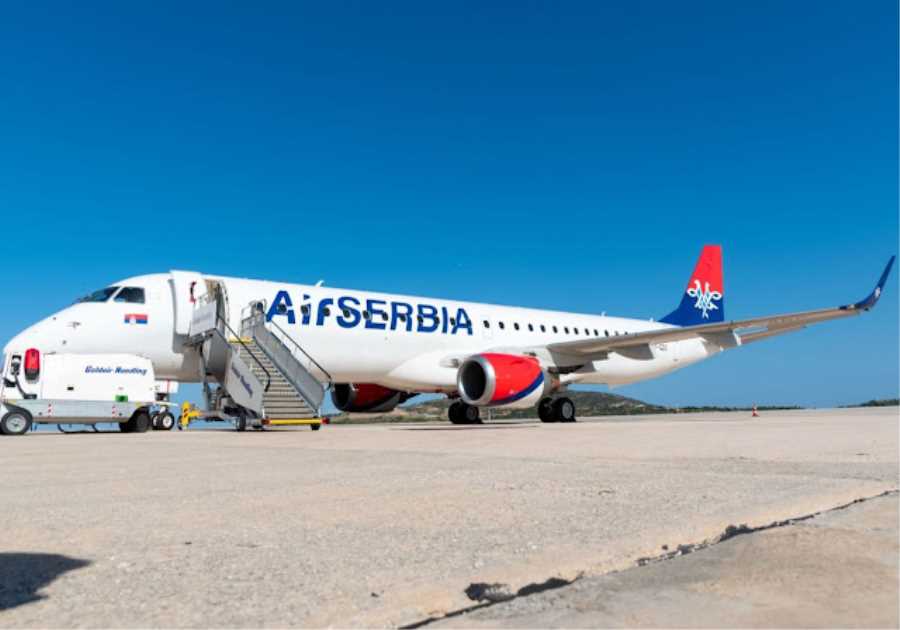HOSTED BY: 1 AIR TRAVEL
Since most everyone loves dogs in this world, we are devoting this week’s column to answering more questions about what you need to know when traveling with your pets.
This expertise comes from Becca Blond, a freelance writer for TPG who has traveled extensively with her 12-pound Chiweenie named Poppy, which you can read more about here.
For more TPG news delivered each morning to your inbox, sign up for our daily newsletter.
In This Post
Do I need vet records to travel domestically?
“You don’t need vet records for domestic travel on airplanes in most parts of the U.S. so long as your dog is accompanying you in the cabin,” Blond told me.
However, if you read my recent story regarding what you need to know about traveling with dogs on a plane, you recall that most U.S. airlines allow pets to fly in the cabin as luggage or in the hold as excess luggage so long as you and your pet are flying together and your animal meets certain size and weight restrictions. However, some airlines do require all pets to fly as cargo.
“If you check your pet as cargo, many airlines require a health certificate, but if you are traveling to Hawaii, for example, the requirements are much stricter,” she said. “If you want to take your dog to Puerto Rico you’ll need to show proof of rabies vaccine as well.”
View this post on Instagram
A post shared by Poppy ✈️?Dog Travel Tips (@jetsetpup)
What is the weight limit for animals on a plane and how do they need to be contained?
“It varies from airline to airline but usually pets must be under 25 pounds and it has more to do with the size of the carrier your dog is traveling in. Airlines require use of certain types of carriers with a max size and these must be able to fit under the seat in front of you,” says Blond. “Your dog or cat must fit into the kennel comfortably. It is best to call the airline before purchasing a ticket to check on their pet policies and the exact measurements required for the carrier.”
As one example, you can find Alaska Airlines’ pet policies on its website. Alaska allows dogs as long as they fit in a carrier that fits under the seat in front of you, but some airlines, like American Airlines, have a 20-pound weight limit for dogs, so do your homework.
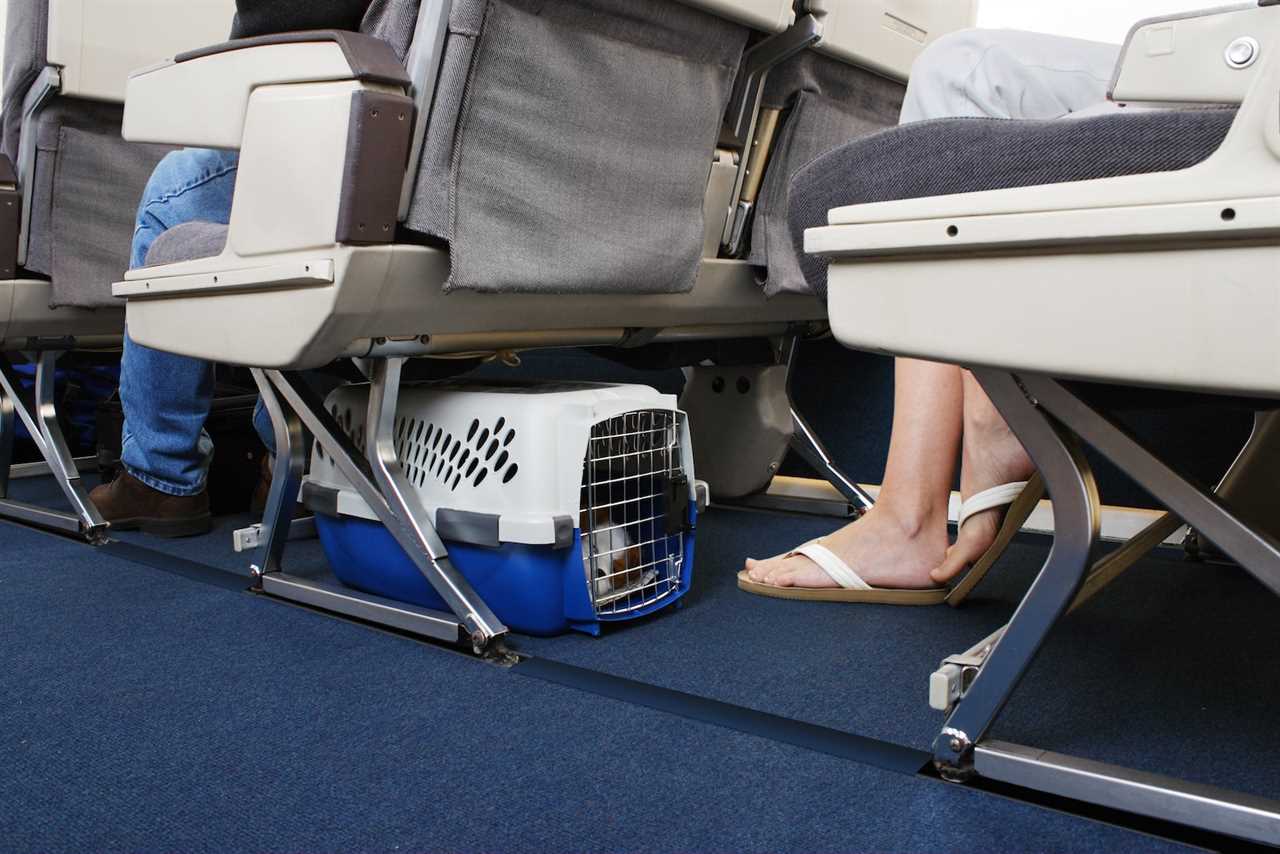
(Photo by gchutka/Getty Images)
What are the best airlines to fly with my dog?
Although most airlines have similar policies regarding weight and cabin limits and fees, you might find yourself partial to one airline versus another when your dog is involved, not unlike your preference for flying certain airlines.
Based on her experience traveling extensively with her dog and previous dogs too, Blond said: “I’ve heard that Alaska Airlines is a favorite for the lowest fees. I’ve also heard Delta can be tricky because not many seats can accommodate the dog carriers. We flew Southwest and had a fine experience. Just know that whatever airline you choose you are going to pay between $100 and $175 each way for your dog to fly.”
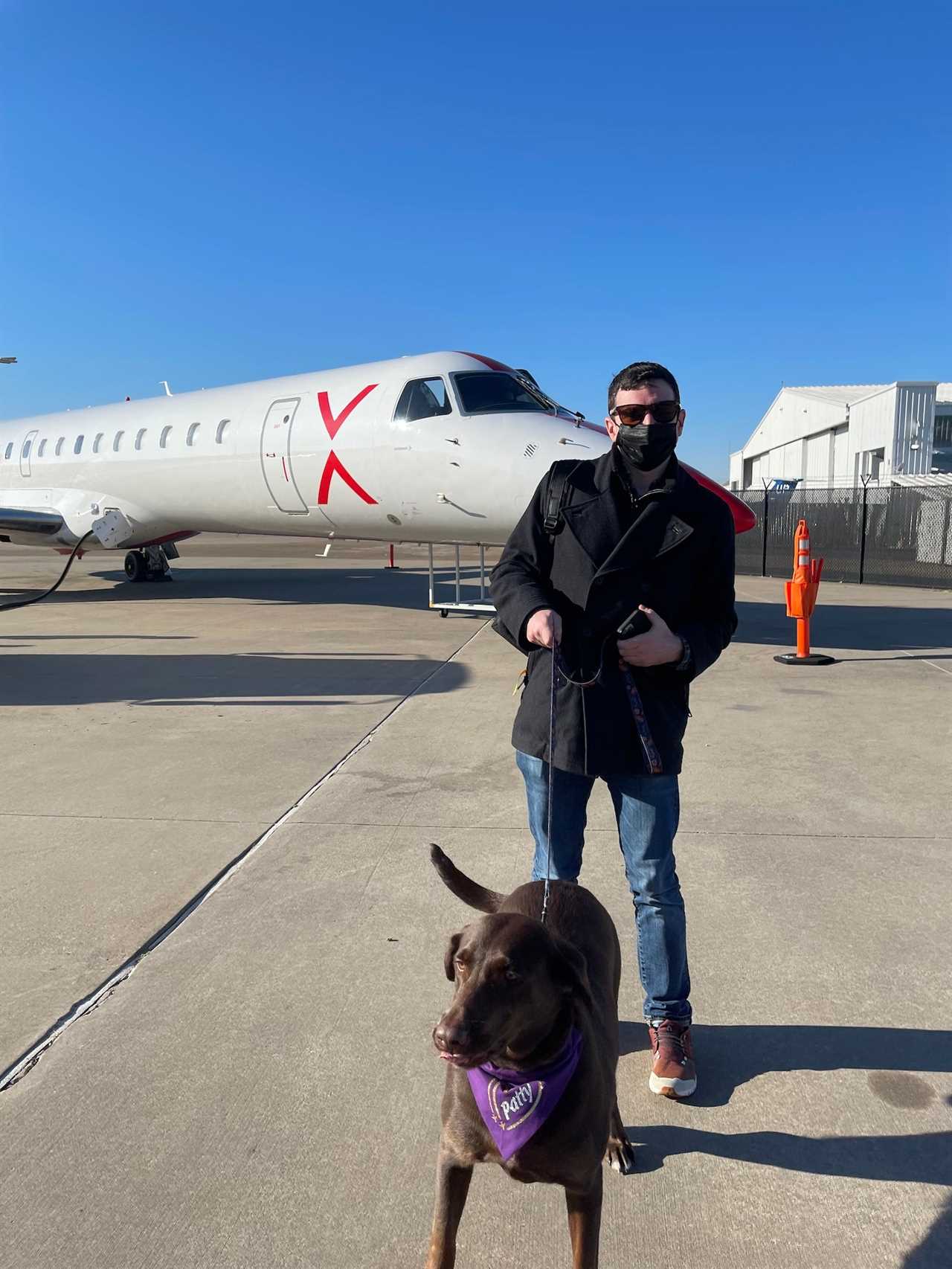
(Photo by Ethan Klapper/The Points Guy)
What’s an EU pet passport and how do I get one?
“A European pet passport is a document which follows an EU standard model and is essential for travel between EU countries,” per the European Union. “It contains a description and details of your pet, including its microchip or tattoo code as well as its rabies vaccination record and contact details of the owner and the vet who issued the passport.”
Dogs, cats and ferrets are eligible for a European pet passport and it’s valid for life as long as your pet’s rabies vaccination is up to date.
However, if you are traveling from the U.S. to Europe, you will need another type of document called an EU animal health certificate, which contains similar information about your pet.
“If you are traveling from a non-EU country or territory, your pet must have an EU animal health certificate issued by an official state vet in the country of departure not more than 10 days before your pet arrives in the EU,” says the European Union. “The certificate is valid for travel between EU countries for 4 months from this date or until the anti-rabies vaccination expires, whichever lapses first.”
Note that pet owners are only able to apply for and receive the aforementioned pet passport on the ground in Europe.
“To initially get into the country to obtain the EU pet passport, you will still need to have an International Health Certificate from a USDA vet in the states,” recalls Blond, who outlined her challenging experience of getting one in Italy here. “Unless you are planning to regularly commute back and forth to Europe with your dog, it might not make sense to go through the effort of getting a pet passport. Also, it is not easy to get in some countries.”
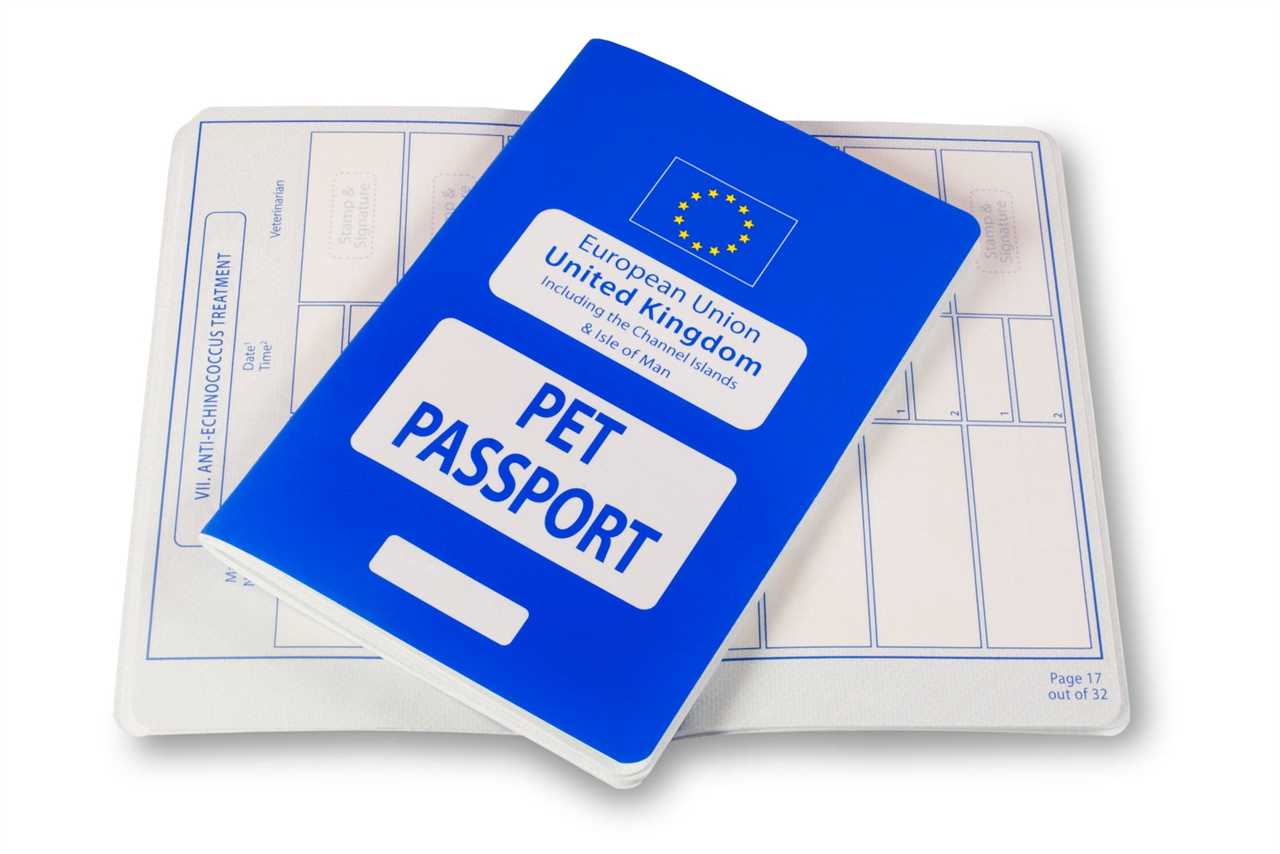
(Photo by JohnGollop/Getty Images)
How do you go about finding dog-friendly restaurants?
“BringFido is a great resource that is usually pretty accurate. Just doing a Google search will often show if a restaurant is dog-friendly and then I always call to confirm. I only know of a handful of restaurants in the U.S. that are dog-friendly inside (craft breweries that don’t serve food are often an exception),” Blond says. “Most dog-friendly restaurants actually mean the restaurant has an outdoor dining section that is dog-friendly, which is great for warm destinations or in the summer.”
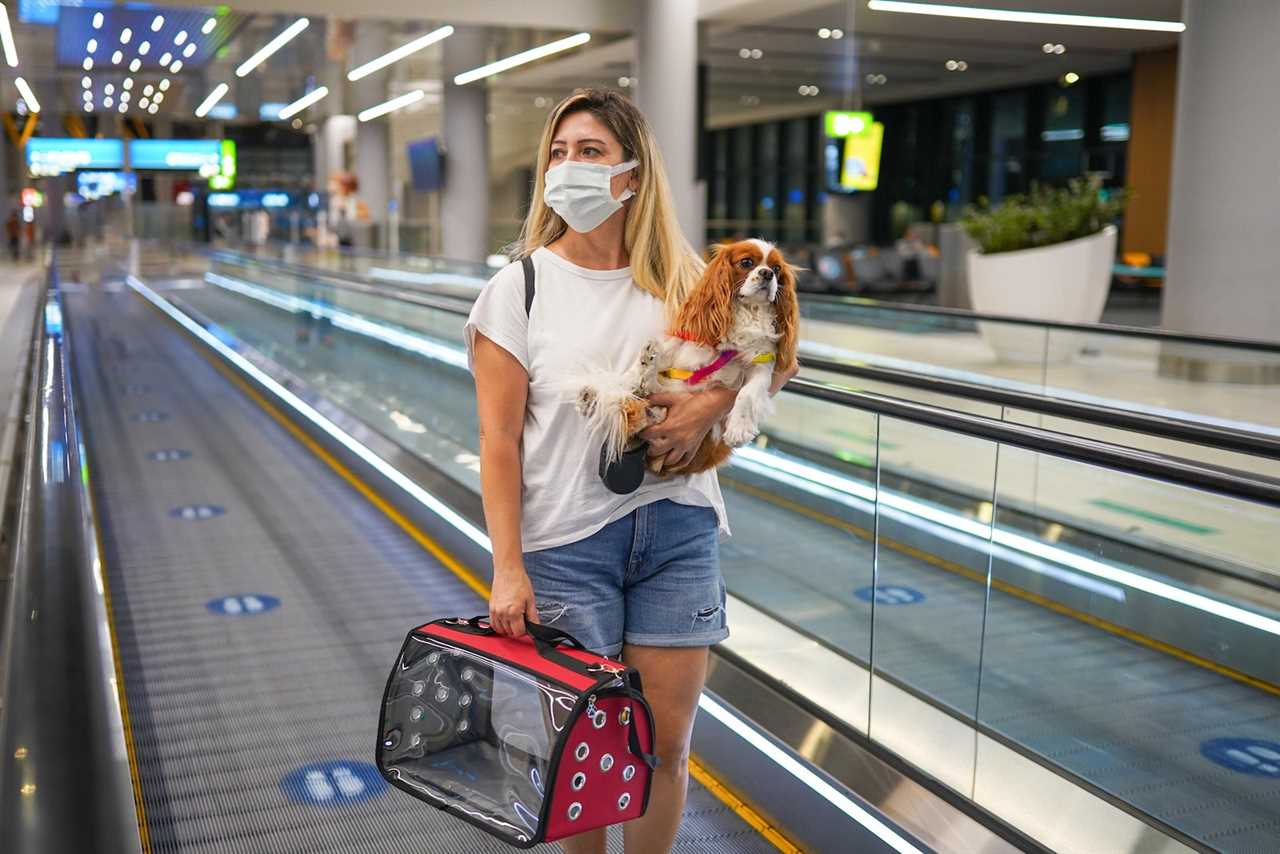
(Photo by Su Arslanoglu/Getty Images)
Have a question for next week? Email me at [email protected] or [email protected].
Featured photo by humonia/Getty Images.
Title: Your pet travel primer: Answering questions about vaccination records, EU pet passports and how to find dog-friendly restaurants
Sourced From: thepointsguy.com/news/pet-travel-qa/
Published Date: Sun, 27 Feb 2022 17:00:17 +0000






